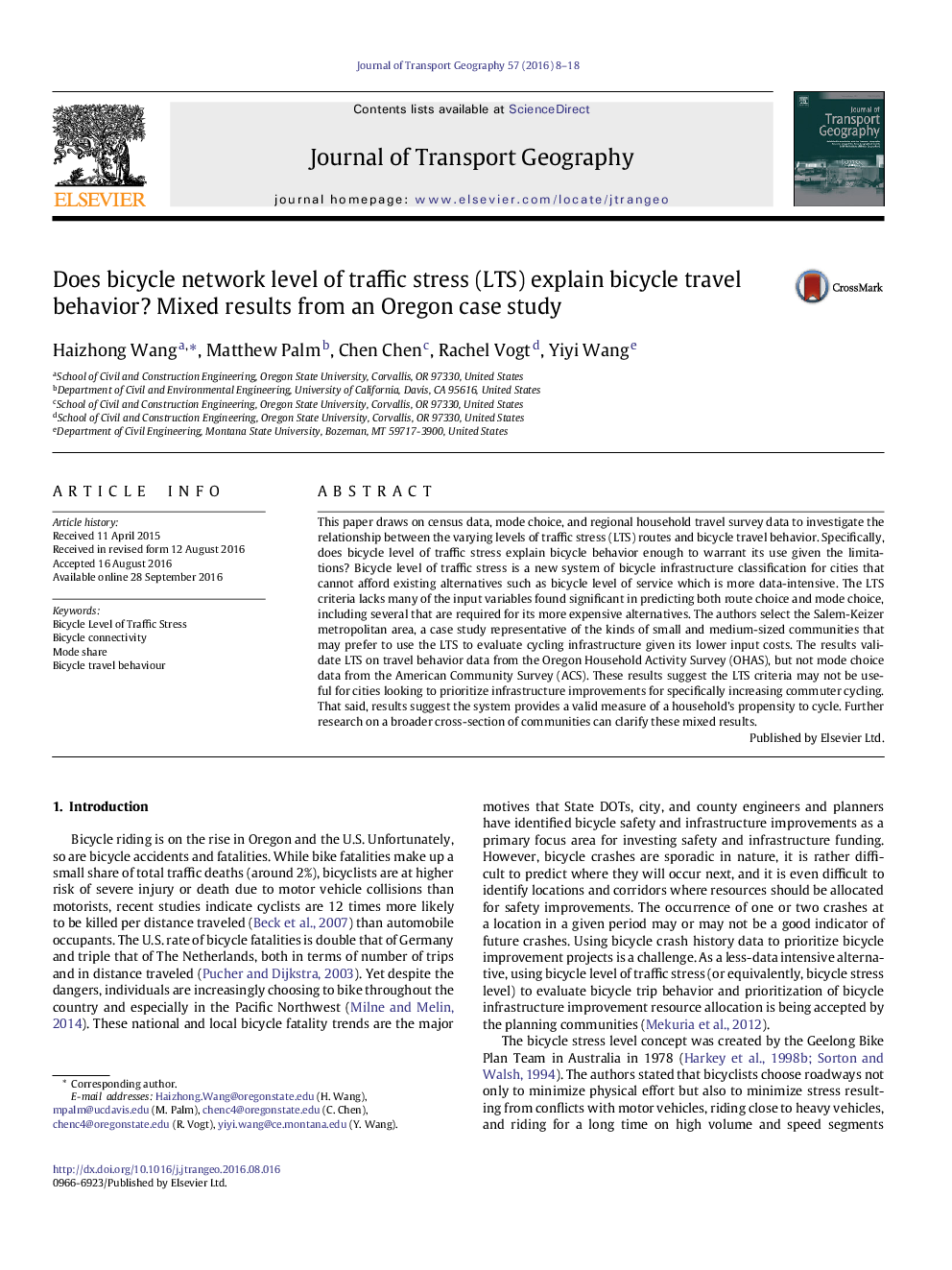| Article ID | Journal | Published Year | Pages | File Type |
|---|---|---|---|---|
| 5117569 | Journal of Transport Geography | 2016 | 11 Pages |
â¢A bicycle level of traffic stress road classification model is tested for significance in predicting cycling in a case study .â¢The classification is tested using Oregon Household Activities Survey (OHAS) and American Community Survey.â¢The state-of-the-art zero-inflated negative binomial regression model is used to quantitatively define the relationship.
This paper draws on census data, mode choice, and regional household travel survey data to investigate the relationship between the varying levels of traffic stress (LTS) routes and bicycle travel behavior. Specifically, does bicycle level of traffic stress explain bicycle behavior enough to warrant its use given the limitations? Bicycle level of traffic stress is a new system of bicycle infrastructure classification for cities that cannot afford existing alternatives such as bicycle level of service which is more data-intensive. The LTS criteria lacks many of the input variables found significant in predicting both route choice and mode choice, including several that are required for its more expensive alternatives. The authors select the Salem-Keizer metropolitan area, a case study representative of the kinds of small and medium-sized communities that may prefer to use the LTS to evaluate cycling infrastructure given its lower input costs. The results validate LTS on travel behavior data from the Oregon Household Activity Survey (OHAS), but not mode choice data from the American Community Survey (ACS). These results suggest the LTS criteria may not be useful for cities looking to prioritize infrastructure improvements for specifically increasing commuter cycling. That said, results suggest the system provides a valid measure of a household's propensity to cycle. Further research on a broader cross-section of communities can clarify these mixed results.
